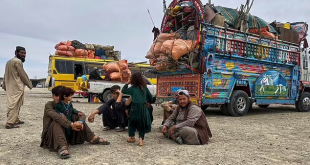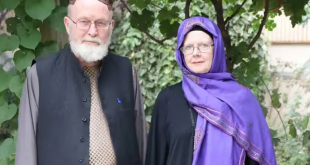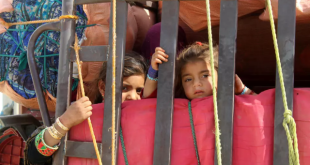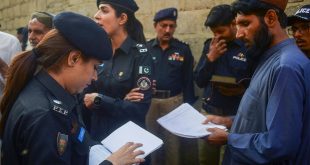Turkish president says result is a message to Kurdish group PKK as ruling AK party takes back majority in parliament.
Turkish President Recep Tayyip Erdogan has hailed his party’s election victory as a vote for “unity and integrity” after the ruling Justice and Development Party (AK party) took back a majority in parliament.
With almost all of the ballots counted on Monday, Erdogan’s party won 49.4 percent of the vote – enough for a majority with 317 seats.
The main opposition CHP won about 25 percent of the vote (134 seats), while the nationalist MHP party secured almost 12 percent, 40 seats.
The pro-Kurdish HDP party has claimed 10.8 percent to get 59 seats.
In a statement after his party’s win, Erdogan said the result “delivered an important message” to the outlawed Kurdistan Workers’ Party that “oppression and bloodshed cannot coexist with democracy.
“Our people clearly showed in the November 1 elections that they prefer action and development to controversy,” 61-year-old Erdogan said.
Voters “have given proof of their strong desire for the unity and integrity” of Turkey, he added.
Unity message;
The outcome of the vote came as a surprise to many, as opinion polls had predicted a replay of the June election when the AK party won only 40 percent and lost its majority for the first time in 13 years.
Then, the pro-Kurdish HDP party won seats in Turkey’s parliament for the first time, denying Erdogan’s party a majority, but renewed violence with Kurdish fighters and a surge in bloody attacks have boosted support for the government.
Addressing jubilant AK party supporters in his hometown Konya as the results became clear, prime minister and AK party leader, Ahmet Davutoglu, said that all 78 million people of Turkey would be embraced, whether they voted for the party or not.
“We are here to plant seeds of love. There is no rival or enemy on this land. There is only affection,” he said.
“Nobody should get into a psychology of defeat. Our democracy has won,” Davutoglu added.
Worsening security;
The polls were held amid instability spilling over to Turkey from neighbouring Syria and renewed tensions over the 30-year-old Kurdish conflict.
Three bomb attacks in recent months on political and activist rallies across Turkey, blamed on the Islamic State of Iraq and the Levant (ISIL), shocked the Turkish public, killing 139 people.
A bomb explosion in October at a peace rally in the capital, Ankara, killed 102 people. The violence marked the worst such attack in the country’s modern history.
Meanwhile, an escalating conflict with the outlawed Kurdistan Workers’ Party (PKK), a group fighting for more rights for Turkey’s ethnic Kurds, has killed scores of Turkish soldiers since a ceasefire and talks between the sides broke down in July.
Amid this atmosphere, the currency of the state, the Turkish lira, has massively depreciated, threatening the stability of the economy.
“Erdogan rode the wave of violence back to power,” Aykan Erdemir of the Washington-based Foundation for Defense of Democracies (FDD) and a former Turkish opposition MP told the AFP news agency. After the results, a small group of protesters began throwing stones outside the headquarters of the HDP party in the main Kurdish city of Diyarbakir. Police then fired tear gas to clear the area.
HDP leader Selahattin Demirtas was critical of the electoral process, saying it was not a “fair election” after his party halted campaigning in the wake of the ISIL attacks that targeted pro-Kurdish activists.
“But it’s still a big victory, we have lost one million votes but we have stood tall against this policy of massacres and fascism,” he said, vowing to press the faltering push for peace between Ankara and PKK rebels.
During the election campaign, Erdogan declared that only he and Davutoglu could guarantee security, criss-crossing the country with the message: “It’s me or chaos.” Al Jazeera and agencies”
 Afghanistan Times
Afghanistan Times




